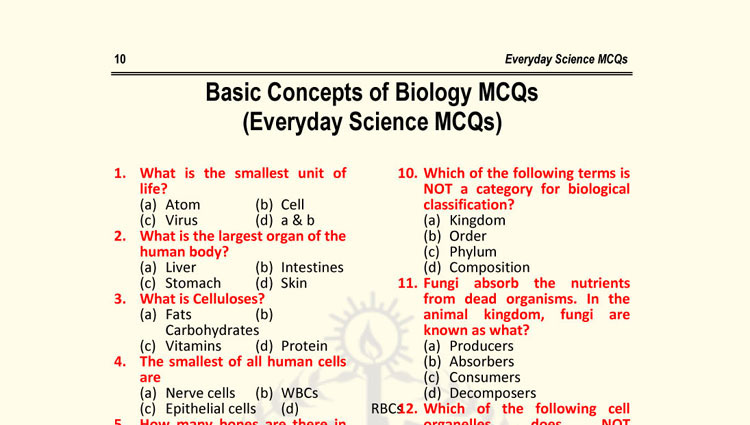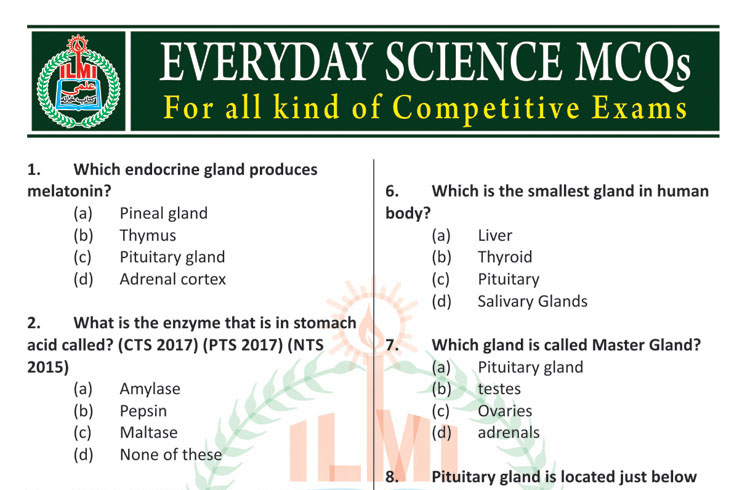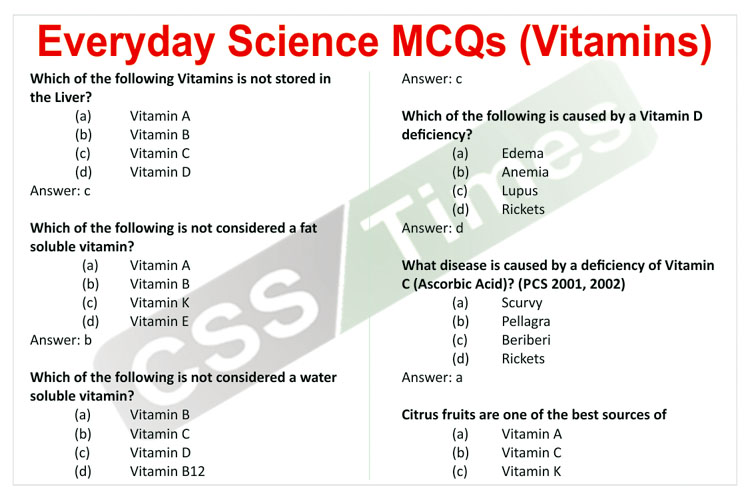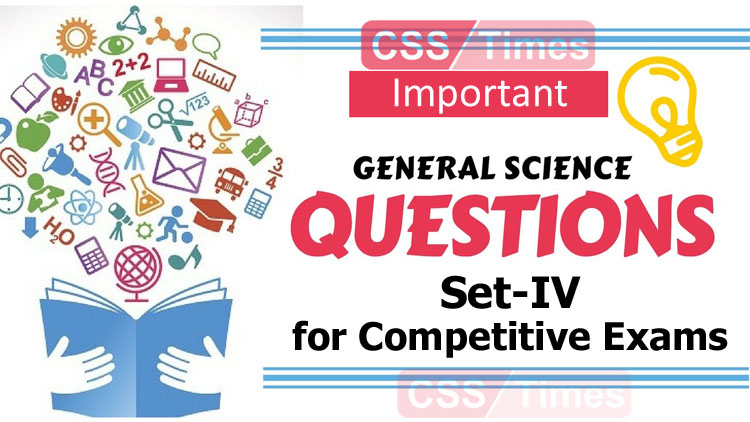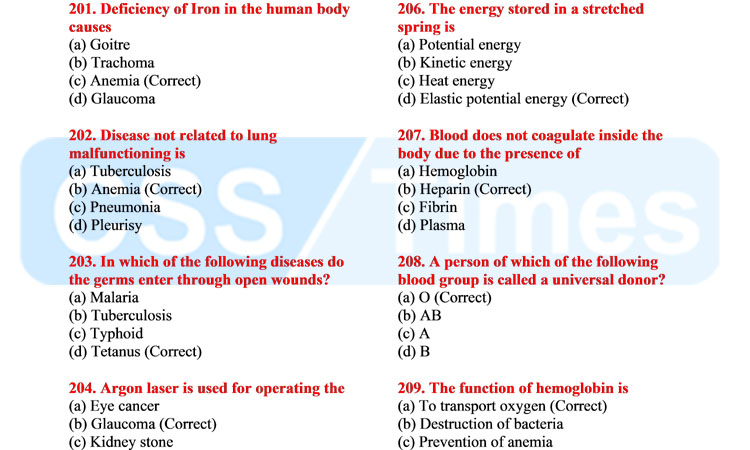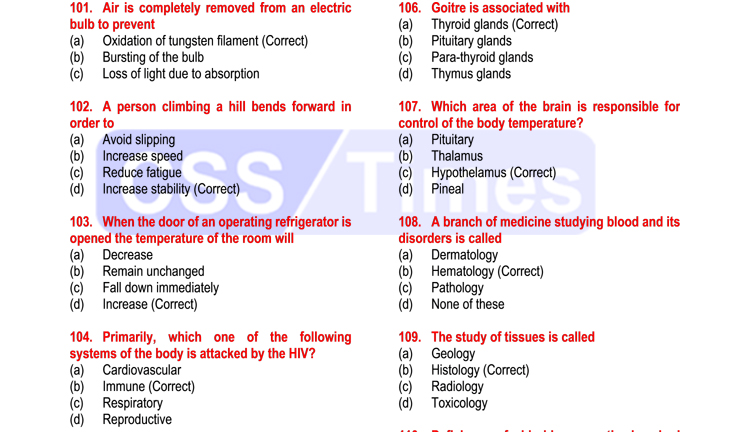Q.1. Hormones assist in which one of the following activities?
(a) Digestion of food
(b) Activities of enzymes
(c) Regulation of the body process (Correct)
(d) Maintaining on optimum level of pH in the body
Q.2. Urea and Uric acid are formed in the metabolism of
(a) Sugars
(b) Fats
(c) Proteins (Correct)
(d) Minerals
Q.3. The most highly contractile part of human body is
(a) Skin
(b) Stomach
(c) Urinary bladder
(d) Iris (Correct)
Q.4. Which one of the following is a tissue?
(a) Liver
(b) Heart
(c) Skin (Correct)
(d) Blood
Q.5. Which one of the following disease is hereditary?
(a) Anemia
(b) Nephritis
(c) Diabetes (Correct)
(d) Night blindness
Q.6. A man suffering from the bleeding of gums is advised to take
(a) Milk & carrot
(b) Sufficient protein
(c) Citrus fruit (Correct)
(d) water
Q.7. Our teeth & bone are made of mainly
(a) Calcium hydrogen phosphate
(b) Calcium phosphate
(c) Calcium sulphate
(d) None of these (Correct)
Q.8. Gastric juice is produced in
(a) Mouth
(b) Liver
(c) Pancreas
(d) Stomach (Correct)
Q.9. The red blood cell in a human body die after about
(a) 150 days
(b) 120 days (Correct)
(c) 90 days
(d) 157 days
Q.10. Of the following organs in human body, largest is
(a) Kidney
(b) Heart
(c) Brain
(d) Liver (Correct)

